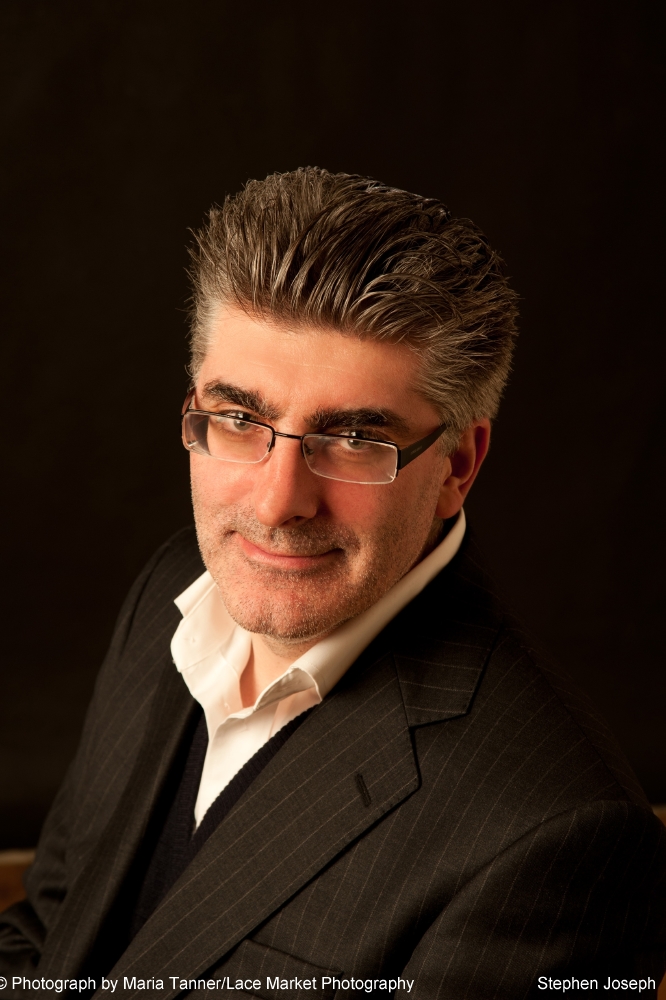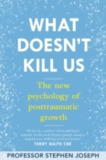
Professor Joseph Stephen
What Doesn’t Kill Us is about how psychological trauma can often be a turning point in a person’s life, often in a way which is positively transformational. Remarkably, hundreds of scientific studies have reported that trauma can lead to the awakening of new priorities in life, increased self-knowledge and deepening of relationships. Psychologists now refer to this as posttraumatic growth.
What classes a as traumatic event in someone’s life?
Most people experience some form of psychological trauma at some point in their lives. It could be an event unique to us and our families such as an accident, illness, bereavement or divorce, or it could be because we are victims of a large scale event such as a disaster, terrorism or war.
When did you passion of working with survivors of trauma begin?
Twenty five years ago there was a horrific disaster at sea. In the capsize of the Herald of Free Enterprise ferry off the coast of Zeebrugge almost 200 people lost their lives. Many of the survivors attended the Institute of Psychiatry in London for help. That is how I became involved. For the next three years I completed my doctorate studies on how survivors managed in the aftermath. I’ve been working on this question ever since, why is it some survivors struggle for years afterwards, whereas others bounce back and some even go on to thrive and seemingly find benefits in some way. It is important to add that those who find benefits do not wish for their trauma to have happened but they recognise that they have to accept what happened as there is no going back. I’d also emphasise that sometimes it is about learning to live more wisely and meaningfully despite much suffering still being in ones’ life.
What are the six steps to manage your emotions after a trauma?
Without hope we can get stuck. The cornerstone of overcoming adversity is learning how to harvest hope within ourselves. We need to know that the future will be different. Many people have told me how important it was to hear about other people who overcame similar obstacles and what they did. One such inspirational person is Terry Waite who survived four years in solitary confinement. Chained, beaten and subject to mock execution this is what he later said: ‘Suffering is universal: you attempt to subvert it so that it does not have a destructive, negative effect. You turn it around so that it becomes a creative, positive force.’ Once we have established hope we can begin to move forward. Having people around us who are supportive of us in this is tremendously important. We need friends and family who can encourage us, but also who know when to just sit and listen.
What is posttraumatic stress?
Posttraumatic stress refers to the psychological reactions people have after traumatic events. Commonly, people experience upsetting thoughts, images, and even dreams after an event. These can pop into peoples’ minds out of the blue. Sometimes after extreme events there may be flashbacks where it feels like the event is actually happening again. All of these experiences can be very distressing indeed. Understandably, people try to block out these thoughts and images by avoiding any reminders as much as they can and even numbing themselves emotionally, perhaps by using alcohol.
What are the current notions about trauma and its aftermath that you want to challenge with this book?
My aim was to show that too often psychologists and psychiatrists only consider the destructive effects of trauma but there is this other side to it. Posttraumatic growth challenges the notion of posttraumatic stress as it is currently understood. I show that such reactions are normal and natural experiences that, if handled right, can actually be the trigger for posttraumatic growth. I use this analogy of a vase to explain. Imagine that a treasured vase sits in a place of prominence in your house. One day, you accidently knock it off its perch. It smashes. Sometimes, when vases shatter, there is enough left intact to provide a base from which to start the process of reconstruction. In this case, however, only shards remain. What do you do? Do you try to put the vase back together as it was, using glue and sticky tape? Or do you pick up the beautiful coloured pieces and use them to make something new - such as a colourful mosaic? When adversity strikes, people often feel that at least some part of them - be it their views of the world, their sense of themselves, their relationships - has been smashed. Those who try to put their lives back together as exactly as they were remain fractured and vulnerable. But those who accept the breakage and build themselves anew become more resilient and open to new ways of living.
What is your professional background?
I am a psychologist and psychotherapist so I try to bridge the gap between what we know about how people manage in the aftermath of adversity with how we can best offer help. Until this year I was the co-director of the Centre for Trauma, Resilience & Growth in Nottingham with my colleague Steve Regel who continues to run the service. But after seven years my role in the University has recently changed. My new role which I’m very excited about is to help develop the counselling and psychotherapy programmes at the University of Nottingham.
What makes one case more complex than another?
All people’s stories are different but they share similarities. What often makes someone’s experiences of managing trauma more difficult is if they are unable to accept change. The more a person tries to maintain their views of the world and their sense of themselves exactly as they were before the trauma, the more stuck they will be. Complexities then arise, difficult emotions are stirred up, and a downward spiral results. The person gets locked into trying to maintain their views.
What is next for you?
I’m looking forward to spending more time now training and working with the future generation of therapists and passing on some of what I’ve learned. I also want to begin thinking about how the lessons I have learned from survivors about how to live life wisely can be applied in everyday life, not just in our clinics in the aftermath of adversity.

